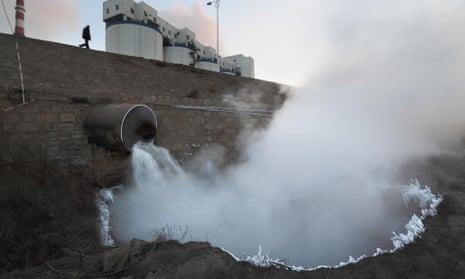China on Wednesday granted public interest groups more power to sue those that flout environmental protection laws, the country’s highest court said, as Beijing steps up efforts to curb pollution that regularly chokes major cities.
Social groups that work to fight polluters judicially will gain special status and have court fees reduced, the Supreme People’s Court said on its website.
They will also be allowed to sue firms or individuals across China, regardless of where the organisation is based.
The term the court used for the groups covers both NGOs and government-backed organisations, although it was not immediately clear whether independent environmentalists will benefit from the regulations.
China has more than 700 registered and regulated environmental protection groups, the official Xinhua news agency cited a ministry official as saying.
The new rules came into force on Wednesday, the court said, adding that they were issued “in response to questions on the matter”.
A side effect of the country’s meteoric economic rise of recent decades has been severe pollution in major cities, leading to increased public dissatisfaction that has unnerved the ruling Communist Party.
Recent studies have shown that roughly two-thirds of China’s soil is estimated to be polluted, and that 60% of underground water is too contaminated to drink.
China is the world’s largest emitter of greenhouse gases and many firms cut regulatory corners due to corruption and politically weak local environmental protection bureaux.
Premier Li Keqiang announced last year that the country was “declaring war” against pollution, and a series of measures have been announced, but questions remain over enforcement.
But despite the increased opportunities for NGOs, they face intense government scrutiny in China, often struggle to secure official recognition, and those that run afoul of the authorities can be shuttered.
China’s rubber-stamp legislature is currently considering a bill that would increase oversight of foreign NGOs looking to operate in the country, the official Xinhua news agency reported last month.
Charges of “illegal fundraising” are frequently used to shut businesses that authorities deem politically inconvenient.
But there are signs the government is willing to accommodate lawsuits brought by environmental NGOs.
Last month, six Chinese companies were fined a record 160m yuan (£17m) for discharging tens of thousands of tonnes of waste chemicals into rivers after being sued by a local government-backed social group.

Comments (…)
Sign in or create your Guardian account to join the discussion